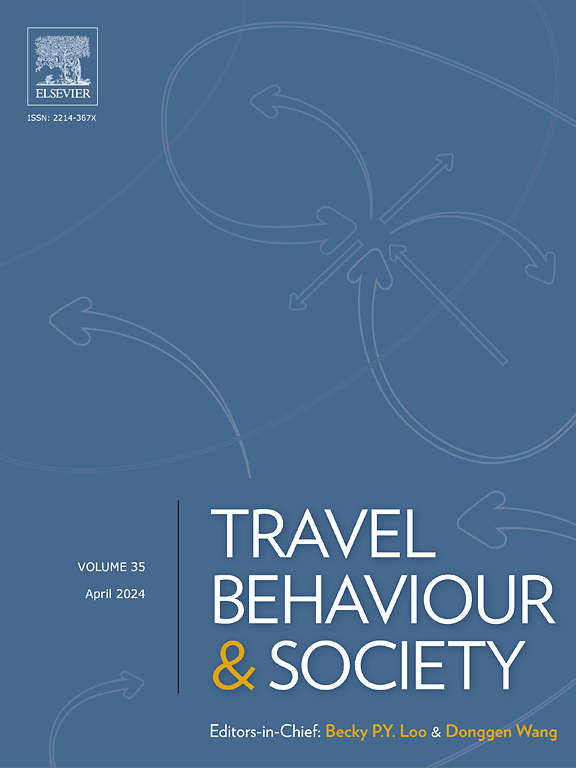乘车体验对汽车旅行者采用私人和共享自动驾驶汽车的影响
IF 5.7
2区 工程技术
Q1 TRANSPORTATION
引用次数: 0
摘要
自动驾驶汽车(AV)试点项目的激增为旅行者提供了乘车体验,这可能对自动驾驶汽车的采用产生潜在影响。本研究特别探讨了乘坐体验对汽车旅行者选择自动驾驶汽车的影响。在共享自动驾驶汽车(SAV)站点附近进行面对面调查,收集两种情况下的ct数据:拥有私人传统车辆(PCV)的ct和没有拥有PCV的ct。采用综合选择和潜在变量(ICLV)模型,将乘坐体验、潜在心理变量和模式选择行为整合在一起,探讨影响ct选择自动驾驶汽车的因素。结果表明,与年龄、性别和收入等社会人口统计属性相比,乘坐体验对自动驾驶汽车的采用具有更大的积极影响。根据边际效应估计,乘坐体验可以使自动驾驶汽车被采用的可能性提高7.37%。然而,在现阶段,私人自动驾驶汽车(pav)的购买成本仍然是ct的决定性因素。当他们不拥有PCV,且pav和PCV的购买成本相等时,他们的偏好向pav倾斜。我们建议政府和自动驾驶汽车公司坚持推进自动驾驶汽车试点项目,并利用各种社交媒体渠道提高人们对自动驾驶汽车的积极认识。本文章由计算机程序翻译,如有差异,请以英文原文为准。
The impact of ride experience on car travelers’ adoption of private and shared autonomous vehicles
The proliferation of autonomous vehicle (AV) pilot projects provides travelers with ride experiences that might have potential influences on AV adoption. This study, in particular, investigates the impacts of ride experiences on car travelers’ (CTs) choices on AVs. Face-to-face surveys near the shared autonomous vehicle (SAV) stations are conducted to collect data on CTs in two situations: CTs possessing private conventional vehicle (PCV) and those not possessing PCV. An Integrated Choice and Latent Variable (ICLV) model is adopted to integrate ride experience, latent psychological variables, and mode choice behaviors to investigate sources of influence on CTs’ choices of AVs. The results indicate that ride experience exerts a stronger positive influence on AV adoption, compared to socio-demographic attributes such as age, gender, and income. According to marginal effect estimates, ride experience can increase the likelihood of AV adoption by 7.37%. However, at the current stage, the purchase cost of private autonomous vehicles (PAVs) remains a decisive factor for CTs. When they do not possess a PCV, and the purchase costs of PAVs and PCVs are equal, their preference shifts in favor of PAVs. We suggest that the government and AV companies persist in promoting AV pilot projects and utilize various social media channels to raise positive awareness about AVs.
求助全文
通过发布文献求助,成功后即可免费获取论文全文。
去求助
来源期刊

Travel Behaviour and Society
TRANSPORTATION-
CiteScore
9.80
自引率
7.70%
发文量
109
期刊介绍:
Travel Behaviour and Society is an interdisciplinary journal publishing high-quality original papers which report leading edge research in theories, methodologies and applications concerning transportation issues and challenges which involve the social and spatial dimensions. In particular, it provides a discussion forum for major research in travel behaviour, transportation infrastructure, transportation and environmental issues, mobility and social sustainability, transportation geographic information systems (TGIS), transportation and quality of life, transportation data collection and analysis, etc.
 求助内容:
求助内容: 应助结果提醒方式:
应助结果提醒方式:


